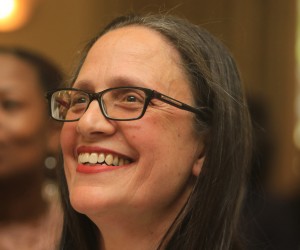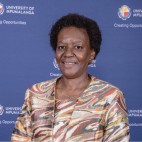It seems that the more technologies bring relief and comfort to our life, the more we get confused about what the future holds for us.
I remember myself, as a child in the seventies, getting excited about TV broadcasting in colour, waiting anxiously for my favourite programme, which I could only watch on a specific day and time. Nowadays? The internet has brought about changes that impact on everything we do. Open Source Technology has enabled us to watch our favourite series anytime that suits us, anywhere, as long as we hold a device with connectivity.
Whether we are baby boomers or Generation X, we can witness the difference between us and Generation Y and Generation Z - those who were born into the mobility of technologies and their ubiquitous manner (presence everywhere or in many places simultaneously). Technologies have transformed how we trade, how we communicate, how we monitor our health and our finances. The list goes on and on. The internet changed the way we talk to each other (no need to talk, there is WhatsApp), the way we let everyone know about a special event (WhatsApp Groups) and even the ways in which we buy presents.
What does this mean for the workforce of the future? The thing is, that we do not really know what the future will look like due to the continuous exponential growth of technologies and how they endlessly impact our lives in ways we never imagined.
The present schooling system was formed during the 1st Industrial Revolution to equip a specific kind of workface. Moving from hand production to machines required workers that fit the manufacturing industry. This is different from what is expected to evolve through the 4th Industrial Revolution. But this same 250- year old set-up for education delivery is still used nowadays and everyone agrees that it is not relevant to the workforce of the future. How can we as educators, policy makers and parents adjust to those changes? I believe the answer lies in three fundamental factors:
Personal Development. It is no longer the case that once you completed a qualification, feel that you are competent and ready for the workforce. The case for education is in lifelong learning. We need to motivate our children to keep on learning. Start from what they are passionate about and register them for online courses such as MOOC platforms like Coursera and Udemy. LinkedIn Learning and Master Classes offer a variety of soft skills as well as hard skills. Khan Academy provides online lessons, which are good for learners struggling with subjects or learners wanting to expand their knowledge on a specific topic
Mental Development. People have to learn to adjust to changes in a quick and speedy way. Resistance to change in the workplace is detrimental to both the organisation and the people in the organisation. One of the ways to do that is to instil mindfulness through meditation as a regular daily practice from an early age whether at school and/ or at home.
Equipping young learners with the basic skills of coding and programming. Every single profession is and will be affected by emerging technologies. Our children should become confident adults treating IOT devices, 5G technologies, cyber securities, AI and automation in an assertive and assured way. Sometimes it is about knowing what questions to ask (which are based on fundamental knowledge). If schools do not offer coding, one can go online and look for applications and courses offered. Coding is just like learning a new language, but this one helps to innovate, invent and keep up with the trends.
In conclusion, we should embrace the transformation that the changes in technologies bring. Keeping a curious and inquisitive approach may be just the thing that differentiates you from others who aren’t or won’t. “
ORT South Africa is an accredited, award winning non-profit education and training organisation. ORT’s mission is “Making People Employable and Creating Employment Opportunities.” ORT SA executes this through state of the art, cutting edge training in STEM, Coding and Business Skills. Our model incorporates mentoring, coaching and support.
ORT SA is affiliated to World ORT which operates in nearly 40 countries worldwide.
Follow us on Social Media






